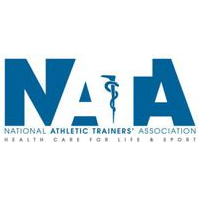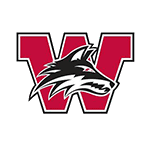Walkertown FAQ
FREQUENTLY ASKED QUESTIONS

Who are Athletic Trainers?
Athletic trainers (ATs) are highly qualified, multi-skilled health care professionals who collaborate with physicians to provide preventative services, emergency care, clinical diagnosis, therapeutic intervention and rehabilitation of injuries and medical conditions. Athletic trainers work under the direction of a physician as prescribed by state licensure statutes.
Athletic Trainers can work in a variety of settings including:
- Public and private secondary schools, colleges and universities, professional and Olympic sports
- Youth leagues, municipal and independently owned youth sports facilities
- Physician practice, similar to nurses, physician assistants, physical therapists and other professional clinical personnel
- Rural and urban hospitals, hospital emergency rooms, urgent and ambulatory care centers
- Clinics with specialties in sports medicine, cardiac rehab, medical fitness, wellness and physical therapy
- Occupational health departments in commercial settings, which include manufacturing, distribution and offices to assist with ergonomics
- Police and fire departments and academies, municipal departments, branches of the military
- Performing arts including professional and collegiate level dance and music
Athletic Trainer vs “Trainer”
Athletic trainers are sometimes confused with personal trainers. There is, however, a large difference in the education, skillset, job duties and patients of an athletic trainer and a personal trainer. You can go to this link to learn more about Athletic Trainers vs. Personal Trainers
For more information about athletic trainers and the profession of athletic training please see one of your athletic trainers or visit the National Athletic Trainer’s Association website .
What should I do if I think my child might have an injury that I want evaluated?
Depending on your child’s sport, there is a good chance that they may experience some type of injury during the season. If the athletic trainer knows about it, they can develop a plan to treat and rehabilitate the injury, if necessary. However, if the student athlete doesn’t say anything then the athletic trainer is not aware of any injuries and cannot provide assistance. If you notice something out of the ordinary or your student athlete says something to you regarding a potential injury, ask them if they were evaluated by the athletic trainer. If not, have them stop by the athletic training room at their earliest convenience in order to be evaluated. Even if you/they think it’s minor, we are happy to evaluate the injury and recommend a treatment plan. It is better to take precaution before it becomes something that will have the athlete miss time away from their sport. You can always contact us (email is preferred) to give us a “heads up” so we can look out for your child the next day and know what has occurred.
What types of treatments or rehabilitation can the athletic trainer at Walkertown provide?
Our facilities are limited, however, we do offer the following modalities: moist heat, ice, electric stimulation, ultrasound, as well as a variety of rehabilitation instruments for balance, strengthening and conditioning. If something is needed that cannot be offered on campus, your athlete will gladly be referred to the appropriate provider (please see WFBH Facilities).
Is the athletic trainer present at my student athlete’s practices or games?
The presence of an athletic trainer depends on the sport and season. There are mandatory state statutes and guidelines set forth with regards to sport coverage. Currently, it is required that an athletic trainer be at ALL football practices and both home and away games, as well as wrestling matches as both sports are consistent with increased risk of injury. Other teams practicing or hosting events at the same time will not likely have an athletic trainer, but may or not have access to a first responder.
Should an injury occur in an athlete with the athletic trainer being on campus but not immediately present at practice, the coach will contact the athletic trainer and they will evaluate the athlete. For home games, we always try to have an athletic trainer and/or first responder present if possible, however, it might be after football is done for the day. During the Winter and Spring, the athletic trainer will float around to all the many sports going on and attend home games providing coverage for both our Vikings as well as the visiting teams.
How do I recognize a concussion?
A concussion is defined as an injury to the brain caused by a direct or indirect blow to the head or body that may or may not involve loss of consciousness (National Athletic Trainers’ Association Position Statement). Secondary school athletes are particularly susceptible to concussions and the effects of concussions as their adolescent brains are still in developmental stages.
Signs and symptoms of a concussion may vary amongst each individual and can affect your thinking, the way the body feels, your mood, or sleep. The most common signs and symptoms of a concussion include: headache, confusion, lack of coordination, memory loss, nausea or vomiting, dizziness, irritability, difficulty concentrating or remembering, sensitivity to noise or light, nervousness or fatigue.
More severe signs and symptoms associated with concussion that may prompt transport to an emergency facility include:
- Prolonged loss of consciousness
- Suspicion of a spine and/or skull injury
- Deterioration in level of consciousness, mental status, or neurological symptoms following initial evaluation
- Presence of any focal neurological deficit
- Persistent vomiting
If parents or athletes have any questions about concussions or think they (the student athlete) may have sustained a concussion, they should immediately report to the athletic trainer or seek emergency medical care for more severe symptoms.
When can my athlete return to play following an injury or illness?
Student athletes that are absent from athletic practice for five (5) or more consecutive days due to injury or illness must provide documentation of medical clearance by either a licensed physician or his/her designee (nurse practitioner or physician assistant) before readmittance to practice or contests.
Students that are absent due to a potential head injury should follow the designated protocol and may return upon medical release by a licensed health care provider (physician or nurse practitioner) before readmittance to practice or contests.
NCHSAA Handbook 2020-2021 Red Letter.indd (1.2.9e)
How do I get in contact with the Athletic Trainer?
You can always stop by and see the athletic trainer person at events (practices and games). Email is preferred as the athletic trainer cannot always take phone calls. Please make sure to reference your child’s name and sport when making contact.
Where is the Athletic Training Room located?
Give specific directions to your AT room and/or satellite stations.
How can I support my Sports Medicine Program?
Any donation is gladly accepted to better assist with the treatment of student athletes. Please see your athletic trainer for further details on what may be needed and how you can give.


